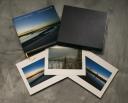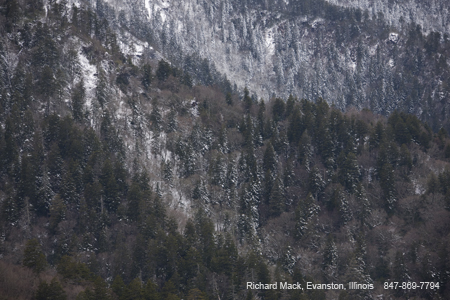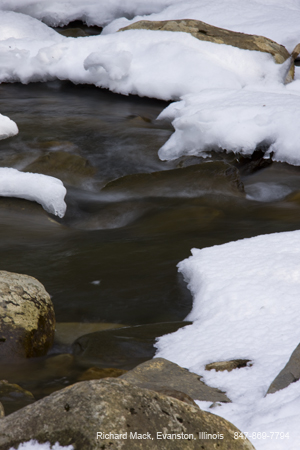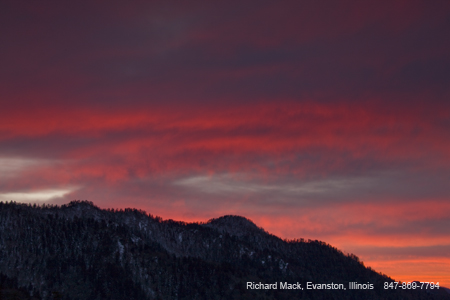March 20, 2008. Some look at it as the day of the equinox, the day the sun passes over the equator and begins to warm the northern hemisphere. For photographers it marks the beginning of spring and the thought of wildflowers springing up, or light beginning to make its way to the north side of buildings and mountain slopes. For me it is also my 53rd birthday. But it is also the third anniversary of the release of my inaugural book The Lewis & Clark Trail American Landscapes.
Some reflections of the past three years are what I would like to discuss here today. It has been an interesting ride. From the initial decision to start a project of this magnitude, spending 6 months planning the shoots, 2 years on and off the trail making the images for the project, finding a publisher, and ultimately thinking the best way to go is to become your own publisher (a notion made partly of the romance of being a publisher of fine art photography books and the hard line decision that it was the only way to make it financially rewarding). And once you make the decision to publish your own work, and maybe the works of others eventually (but will discuss that at a later date), then you must begin the process of making the book a reality and not just file cabinets filled with images. Editing the thousands of images, finding the perfect designer (or in my case two of them in Rudi Backart and Rich Nickel!), getting printing quotes from around the world before settling on a fine art printer right here in the United States – the Stinehour Press in Vermont.
But those are all of the production decisions which have to be made. There is an equally mind numbing set of decisions which need to be addressed on the marketing side. Now, you would think someone who has spent his career in the advertising industry as a photographer, would know how important it is to have looked at the end part – the selling of the book – before forging ahead on the production side. Nope. I was thinking to laterally. Get it done and they will buy. After all why wouldn’t they – the images are beautiful and the concept never done and there will be 40 million people along the different parts of the trail during the 200th anniversary years of the expedition. How can it not sell! This was the thinking I had. Fortunately, I had others around me who whacked me upside the head. Bryan Glaza, my first client and now a life long friend, sat down at one of our initial marketing meetings, with Kathy Weber-Mack, Rich Nickel and Kristi Mendez and asked – innocently enough – “What will you do if it doesn’t make it to the shelves of the Barnes & Nobles of this world? Then how will you sell it?” Bang on. And the brick hit me hard! Why would they not carry it? They carry a book about a couch being carried around the world, about stark images of small towns, how could they turn this down? But they initially did. When I actually received a letter saying they’d carry it online but not on the shelves I was stunned. They eventually acquiesced but only slightly it still seems. So Bryan’s original question still remained, “then what”.
Well, we hit the trail again, placing the book in every store and museum along the trail we could. Put out the required press releases, got some press in the papers, then on TV and radio, then more in the papers and then on national TV on NBC News! (And yes you can see them from our website just go to www.quietlightpublishing.com/news.html and follow the links for the various programs and articles). We also were lucky enough to win roughly a dozen book, design and photography awards for this book. So, in the three years since the release of the book, we have sold roughly 5,000 copies. Not bad for a photographic book. But, what I didn’t know was most photographic books have a print run of 1,500-3,000 tops. And that leads me to mention one of the biggest mistakes I made during this whole process. The decision to print 10,000 copies, based solely on the printing costs, and the fact that the more you print the less the per unit cost. I did not think about the fact the reprint costs would make up for an initial higher price per unit. In retrospect I should have printed at most 5,000 copies the first time out, maybe even less. But the book has done exceedingly well, we’ve made money on the project, and it is still selling each and every month. Of interest to me is the fact that most big book stores thought it would only sell along the trail. Nothing could be further from the truth. We’ve found, most of our direct sales through our website have been in states away from the trail, the northeast, southeast and southwestern United States buy as many as the Midwest and northwest where the trail winds its way through. Clearly this should be a book featured prominently at holiday time by the big stores nationally don’t you think?
We also released a Limited Edition version, limited to 200 editions in honor of the 200th anniversary of the expedition. It is presented in a leather slipcase and includes three prints, each representing a year the expedition spent on the trail. Each book and set of prints are signed and numbered accordingly. This edition is available from Amazon or directly on our website at www.quietlightpublishing.com. We also have an extensive collection of fine art prints from the book available online. Images from the book have been in exhibits in several galleries, and were the backdrop for an exhibit by the Newberry Library in
On this the third anniversary of the release party (www.quietlightpublishing.com/gal_opening.html) I can say it has been a great ride! I have spoken to many groups about the book, photography and the Lewis & Clark Expedition. It has enabled me to think about other books now in the works, one on Great Smoky Mountains National Park and one on the
I want to thank everyone who has enjoyed the book, come out to the lectures, worked behind the scenes to make this possible and in the making of this book. One person can never make a project this size come about alone. It does take a team effort. Without all of you we would not be where we are now. Thanks!
Peace,



